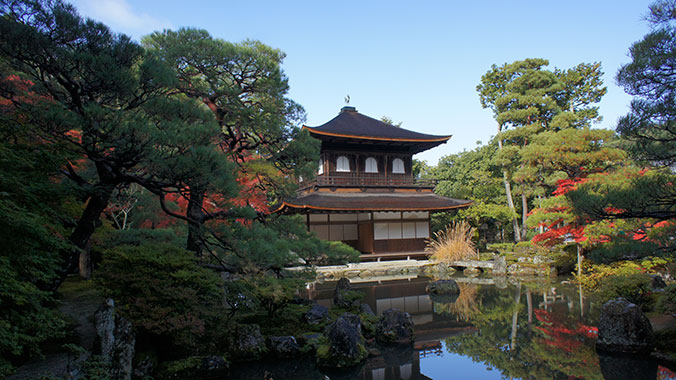|
Shopping
- Try and pay for goods on the street in exact change as sometimes the vendor will not make change for you.
- Refunds are rarely given so make sure you want what you’re buying before you make the purchase.
- It’s okay to bargain with local street vendors for a fair price. Remember, oftentimes their shop is their livelihood so try and be as reasonable as possible when paying for an item.
- Convenience stores in Japan have way more to offer than convenience stores in other parts of the world. You’ll likely find whatever you need from phone chargers to concert tickets.
Transportation
- Trains, budget airlines buses and ferries are great ways to travel at low-cost. If you’re taking a bus, just be aware that the roads are often uneven and bumpy.
- Don’t expect buses to leave or arrive on time as they usually leave when they’re full. If you want to get a seat, arrive to the station early.
- Never get into a vehicle without first agreeing upon a price, same goes for buying goods at local markets.
- Don’t be afraid to negotiate the price of a tuk tuk! You can get a good ideas of prices from your hotel so you’ll know when the prices are too high.
- If renting a scooter, drive cautiously and always wear a helmets. Take detailed pictures of the scooter and point out any damage to the renter up front to avoid any unwanted charges later.
- In Vietnam, try a night bus. Some even have sleeper cars.
- “Grab” is “the Uber of Asia.” Grab a car in the Philippines and other Asian countries.
- Be careful when crossing the street. Traffic lights are often ignored and traffic can be heavy
- If you want to see a lot of Japan, consider purchasing a Japan Rail (JR) Pass. This must be booked before the trip.
Visiting Temples
When exploring temples, make sure you’re wearing modest clothing that covers your knees and shoulders. Also be prepared to take off your shoes upon entering.
Local Food
- Have fun trying the local street food. If you’re less adventurous, try food that’s cooked in front of you instead of raw fruits or smoothies that may be mixed with the local tap water.
- In Thailand you may be given a fork and a spoon, but the fork should only be used to push the food onto the spoon. It may be considered rude to put the fork in your mouth.
- In Vietnam you may be charged extra if a sealed wet napkin or a bowl of peanuts is set on your table. They’re generally inexpensive but if you don’t want them, politely give them back to your server right away and make sure they aren’t on the check.
- Don’t be afraid to call a waiter over in China, they might not be as proactive as they are in America.
- In general, beef means red meat and chicken means bird. Fish can be anything from anchovies to cod and pork means pig meat. Go ahead and try the local cuisine, but if you’re really worried about what you’re being served, the pork is generally a safe and familiar option.
- Chopsticks are the norm in Japan and some of Southeast Asia. Avoid sticking them upright in your bowl of rice or playing with them, as this can be considered rude.
- Don’t feel rude slurping in Japan! This is often common practice.
Money
- US dollars will be accepted in some Southeast Asian countries so it’s okay not to exchange all your money. Some borders actually require USD to pay for your visa. In China, the USD is not accepted.
- The exchange rates are generally better once you’re in Southeast Asia, so you may want to wait and find a bank once you arrive.
- Many hotels and restaurants do accept credit cards but bring more than one type, just in case.
- In Laos, exchange your money back before leaving as it’s hard to exchange once you are out of the country.
Giving to Locals
If you want to help the local begging children, instead of giving them money, consider dining at a Tree Alliance Restaurant. Located in Vietnam, Cambodia and Laos, these eateries train disadvantaged young locals as chefs and waiters, and also donate money to other programs that assist low-income children and adolescents.
Interacting with Locals
- Because China is so crowded, the personal space bubble here is less than you might be used to.
- There is no use arguing with a local in Asia. Act calmly and try to get your point across with humor and a smile.
- In Japan, bow politely when you meet someone, thank them, or say goodbye, and always bow back if you are bowed to. Shaking hands can happen but is uncommon, and it’s recommended that you wait for them to initiate the handshake before putting your hand out first.
- Tips are not necessary in China and Japan.
Health & Hygiene
- Make sure to pack and wear your bug spray.
- Bring sunscreen from home, it can be pricey in Asia.
- Bring your own toilet paper and hand sanitzer for public restrooms. Also be aware that western toilets aren’t always common.
- Be careful about drinking the tap water and bring water purification tablets just in case.
Disconnect from Technology
In China, most social media is blocked. If you’d like to use Facebook or Instagram, you’ll need to buy a VPN. Learn more →
|





